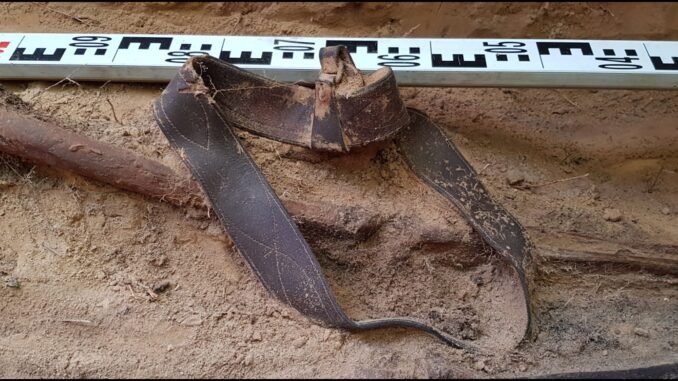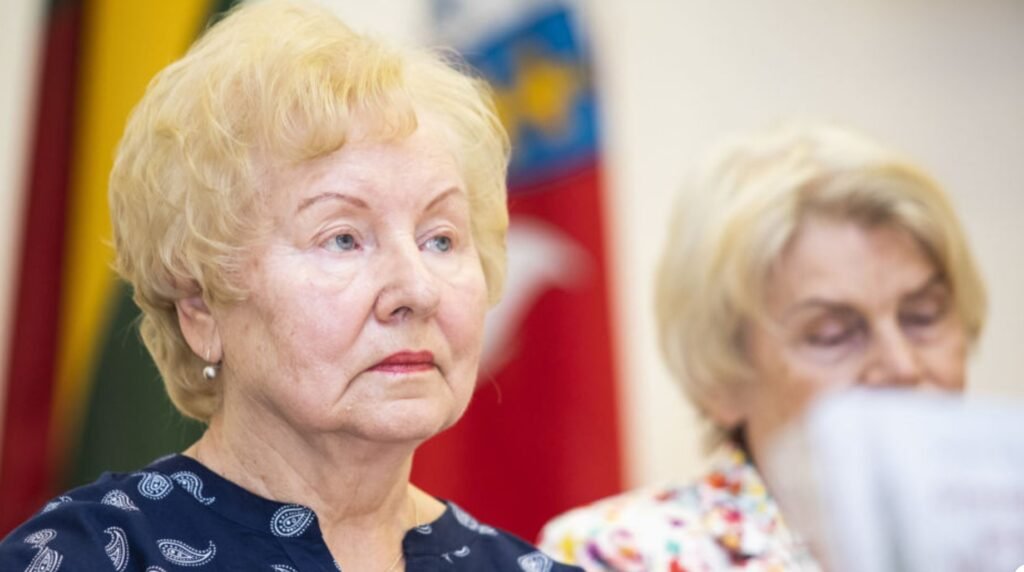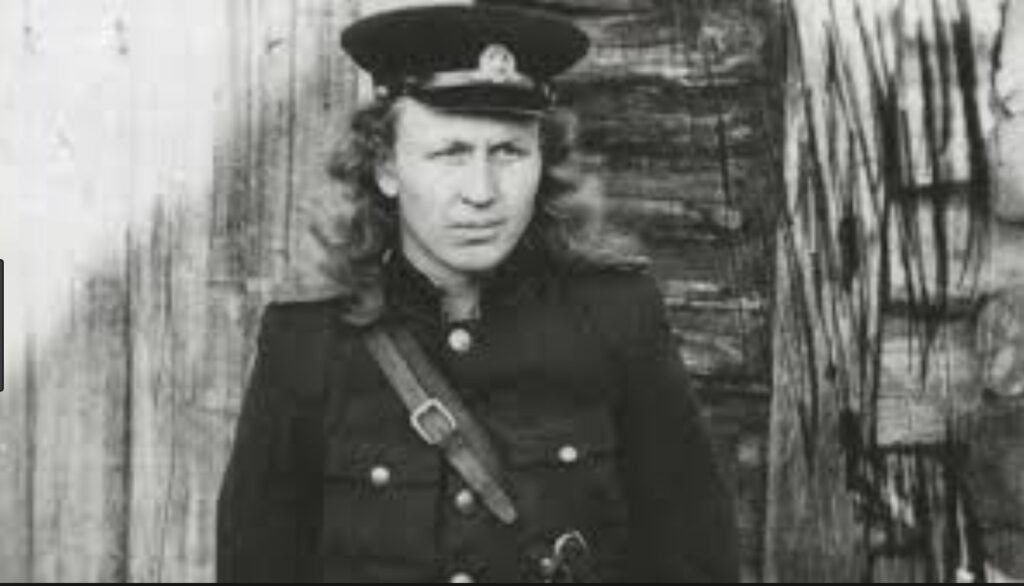
The remains of Antanas Kraujelis-Siaubūnas, which were discovered in Vilnius’ Našlaičių Cemetery are important for all of Lithuania, however, the final partisan’s relatives responded the most sensitively. His sister, Janina Šyvokienė-Kraujelytė says she never gave up and together with her sisters and relatives sought her brother, thus now she struggles to contain her tears. “It’s very hard,” she repeated when thanking those, who found the remains of her brother, Violeta Grigaliūnaitė wrote in 15min.lt
“I cried a great deal yesterday. It’s very hard, you know, so much searching, that… And then suddenly – both joy and you just can’t, when you see,” pointing at screens that displayed pictures of her deceased brother during the recent press conference, the woman said, “It’s very hard.”
“Find my bones”
On March 17, 1965, surrounded by the KGB, A. Kraujelis-Siaubūnas was forced to shoot himself. The A. Kraujelis-Siaubūnas destruction operation was led by KGB major Nachman Dushanski, the act of recognition was signed by KGB junior lieutenant Marijonas Misiukonis, who would later become a KGB colonel, the minister of interior for the LSSR, a major general and the first minister of interior for Lithuania after the restoration of independence.
From the very start, upon finding out about his death, the sisters began seeking the remains of their brother because he himself asked them while still alive when meeting his parents and sisters upon their return in 1961 from deportation to Siberia. Back then, the family sought to convince Antanas to seek ways to remain alive.
“He said that for a time he would remain alive, but that he knew he would not live to see freedom. He said we would. He said that there are many of us – six sisters and asked us to find his bones and suitably burry them. Today, his request is accomplished and I am very thankful, I bow my head to the people, who performed this task,” J. Šyvokienė said.
A year ago, when the remains of Adolfas Ramanauskas-Vanagas were found, his daughter Auksutė Ramanauskaitė-Skokauskienė said that at least now her father would be honourably buried and she will have a place to light candles. Mrs. Janina completely agrees, stating, “Well, of course, it’s a great joy. We will be able to come to the grave and know it is his grave. We will be able to also light a candle where he lied [in Našlaičių Cemetery] because there is a part of him there as well, he is absorbed into there, while his bones will rest here.”
Seeking ever since his death
J. Šyvokienė recalled that upon finding out about her brother’s death, their sister travelled to Utena and stood at the Soviet militia’s door, asking to see the remains of A. Kraujelis-Siaubūnas, to ascertain it is her brother so that the intelligence officers could not go interrogate relatives once again, seek something. However, no one granted her access.
“They said, “you should have looked while he was alive.” She stood there at the door all day and was not allowed in. Are these people? You cannot call them people, non-humans probably. He was no longer alive, but they did not allow burying him,” J. Šyvokienė recalled.
The family’s efforts in seeking the brother became a real Odyssey, which lasted until mid-June 2019.
The sisters spoke to people, inquired, sought where their brother could have been buried. “We hoped it was in the surroundings of Utena, people said he was thrown into Dauniškiai lake and it is almost impossible to retrieve from there.
Afterward, there were talks that he was buried in the Soviet militia’s yard, where there is a garage now. Figures emerged, who claimed that they buried Kraujelis. That proved false. Afterward, a man named Gaidys appeared, who said that there is one, who can say, where Kraujelis is buried. We went with Dalius Žygelis [chief historian of the Lithuanian Genocide and Resistance Research Centre], we found the person, he had been drinking and once more found out nothing. Afterward, D. Žygelis sought another two that Gaidys specified, those did not even allow entry into their homes, the two, who claimed they buried Kraujelis,” J. Šyvokienė said.

Intentional misdirection?
One version was particularly convincing: “A person, who participated in Antanas’ autopsy told a relative of his own that on driving from Papiškiai to Utena, he showed a place and said that this is the location Kraujelis is buried, perhaps a time will come and he will be needed by someone. This version was so convincing to us that we began visiting that person, travelling to that location, sought people, diggers, who worked, no one confirmed, said that no one had dug pits and buried the partisan.
Meanwhile, that person said that Tichomirov [Sergey Tichomirov, head of intelligence in Utena] called a subordinate from his office and instructed to travel to that location, dig a deep pit, bury Kraujelis and make the are inoperable. But perhaps circumstances changed and he was taken to Vilnius.”

According to J. Šyvokienė, both the aforementioned S. Tichomirov and Marijonas Misiukonis spoke in court proceedings that A. Kraujelis’ remains were taken to Vilnius.
Whether the family was intentionally misled in their search for their brother’s remains, Mrs. Janina could not say. However, D. Žygelis is certain – there was an intentional effort to mislead because the supposed or real witnesses would find the relatives themselves and tell them about these testimonies.
At last, we can burry him
Currently there are no talks of opportunities to bury A. Kraujelis-Siaubūnas. His sister Janina told 15min she had not given much thought about it either. “I would like for it to be in Antakalnis because we live here, in Vilnius. For him to be honoured as the last one. He gave everything to Lithuania, he had nothing and cared most about freedom, the greatest value. What is most important is that we found him. If not in Antakalnis, then somewhere else,” the woman said.
She stated that both Antanas’ wife and son are alive and are most likely experiencing no fewer emotions, however, she has not met with them at the moment. Another one of Antanas Kraujelis’ six sisters is also still alive.


Be the first to comment